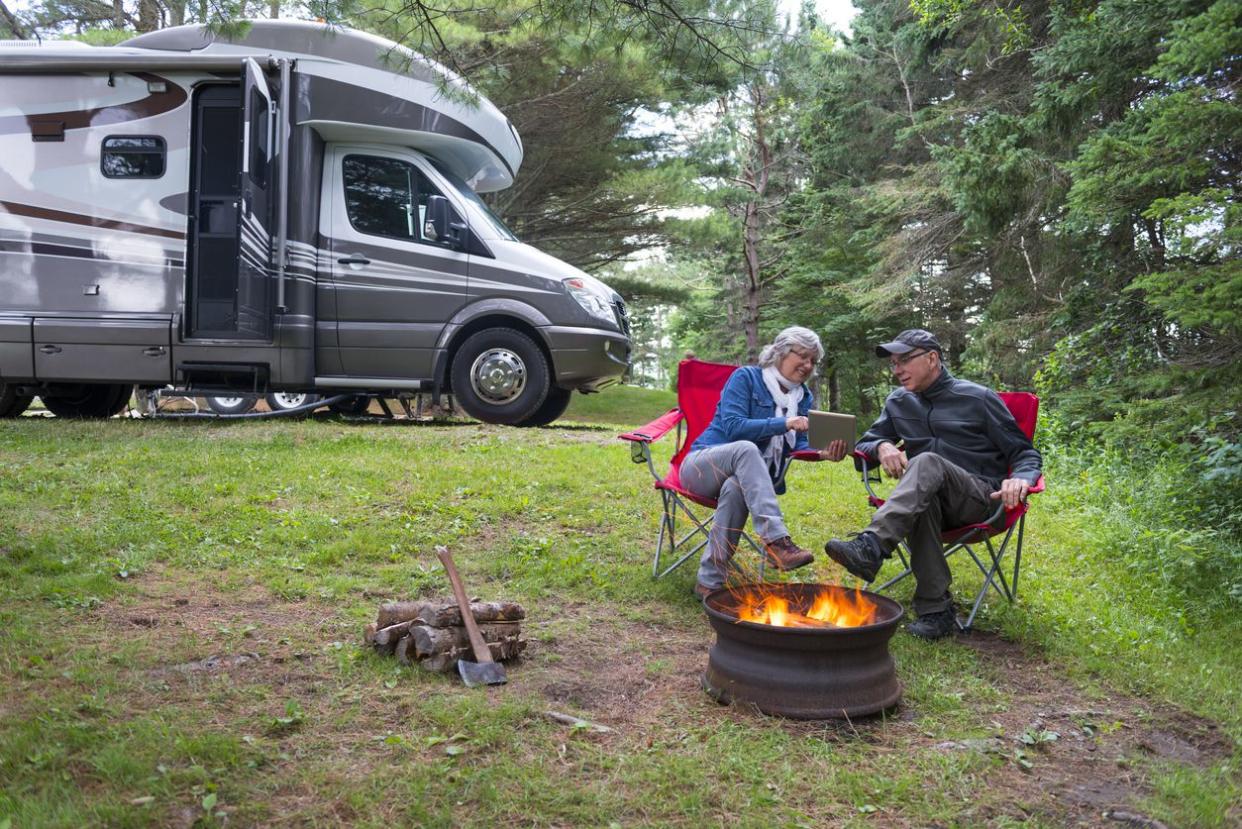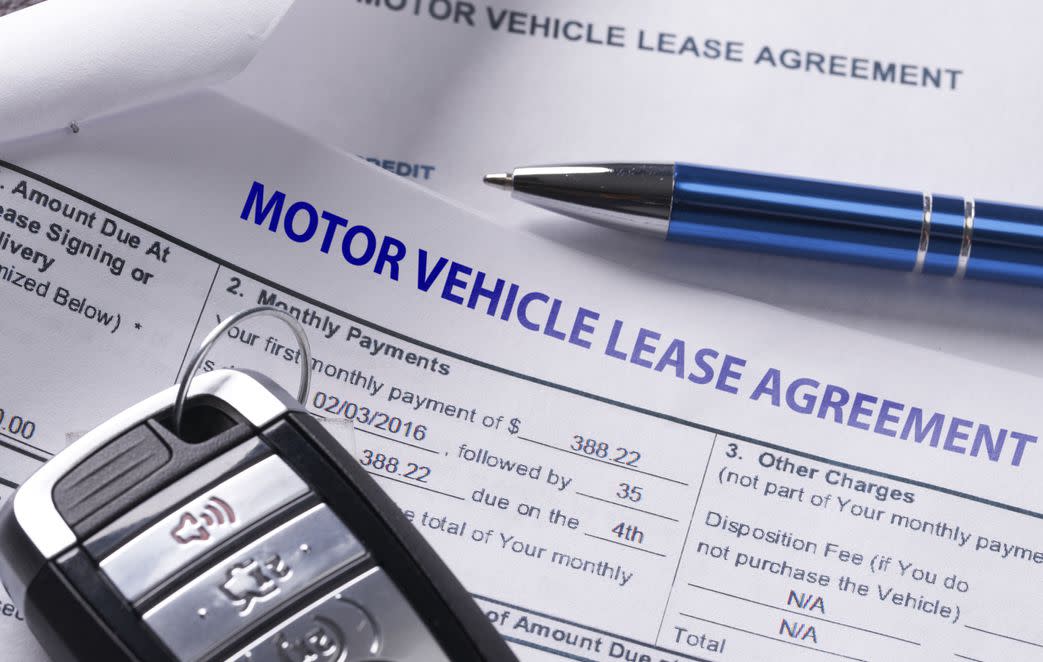RV Tax Deductions You Should Know About

Exploring new places, trying new foods, and meeting new friends is the best part of RVing. Filing taxes and finding RV tax deductions? Not so much.
Still, it’s important that we find good in every situation. While filing taxes will never exactly be fun, it is nice to find deductions and credits wherever you can, and sometimes these can be found in the most unlikely of places. For instance, did you know that you might be entitled to tax write-offs simply because you own an RV?
Related: 50 Interesting and Fun Facts to Lighten Up Tax Time
This article originally appeared on RVshare.com and was syndicated by Cheapism.com.

That’s right, there are actually a few different RV tax deductions out there. The trick is knowing which ones you qualify for so you can ensure you hold onto every penny possible. Lucky for you, we’re going to use this article to dive into the ins and outs of RV tax write-offs so you can file with confidence.
We've listed four tax deductions you might be entitled to as an RV owner. While most people don’t qualify for all four of these deductions, the vast majority of RV owners qualify for at least one, and if you’re lucky, you might even get to use two or three.
Related: Crazy-Sounding Tax Deductions That Are Actually Legit

The first and most used RV tax deduction is the home mortgage interest deduction. This can obviously be applied if your RV is your primary home, but can also be applied to RVs used as secondary homes at least a few days a year. It allows you to deduct the amount of interest paid on your RV loan through the year, meaning it only benefits you if you took out a loan to pay for your motorhome or trailer.
To qualify for the interest tax deduction, your motorhome or trailer does have to meet certain requirements. These requirements are in place to close loopholes one might use to claim an unlivable dwelling as a second home. That said, if you purchased your RV and it is livable, it likely qualifies.
Related: What It's Really Like to Retire in an RV

The official requirements are as follows:
“A home includes a house, condominium, cooperative, mobile home, house trailer, boat, or similar property that has sleeping, cooking, and toilet facilities.”
In addition to making sure your RV meets the legal requirements to take this deduction, you must also ensure your loan is of the correct type. In order to qualify for this deduction, the loan on the RV must be secured by a qualified home. Essentially, this means the RV is used as collateral on the loan and could be repossessed should the loan go unpaid. The vast majority of RV loans do fall into this category, but personal loans that aren’t specifically tied to the RV do not.
It’s also important to note that the interest on a loan for your tow vehicle used to pull your travel trailer or fifth wheel is not deductible, and should not be included in this portion of your tax return.
For more great RV articles, lifestyle stories, and money-saving tips, please sign up for Cheapism's free newsletters.

Another way you might find tax write-offs through your RV is if you ever use your rig for business travel. In this case, you might be eligible to claim campground fees and other travel expenses—as well as the business miles driven—on a Schedule C.
The business mileage deduction for 2021 tax season is 56 cents per mile driven. That said, it is important to understand that only miles driven purely for business may be claimed. Additionally, if you are a full-time RVer and your RV is your business home base, you may claim miles driven away from the RV for business purposes, but may not claim miles driven to move the RV from one spot to another.
If you choose to write off business miles traveled in your RV, be sure you keep meticulous records throughout the year in order to prove where you went, when you went there, and how it was related to business.
Related: These Tax Moves Are Most Likely to Trigger an Audit

If you rent your RV, you can write-off costs directly related to your rental business on a Schedule C. Again, you will want to make sure you keep detailed records throughout the year, making sure to save receipts and taking note of damages after each rental.
If your RV is only used as a rental, these deductions are very straightforward, and nearly every expense involved in the care of your RV can be claimed as a business expense. However, if you do use your RV for your own purposes part of the time, things become a bit more muddy. In this case, expenses related directly to the RV’s role as a business asset are deductible.
Obviously, claiming RV tax write-offs when your RV is used for personal trips (in addition to being a rental unit) can be a bit confusing. This article may help clear things up, but we recommend hiring a tax professional if things get too difficult to sort out.
Related: How To Start Your Own RV Rental Business

Along with the above benefits, your RV might also be eligible for an RV sales tax deduction. This tax deduction could benefit you even if you paid for your rig in cash and don’t pay interest on a loan. It allows you to deduct the amount you paid in sales tax when purchasing your RV. Obviously, this deduction can only be used the year you purchase your RV, as that is the only time you will pay sales tax on it.
It’s also important to note that if you purchased your RV in one of the five states that don’t assess sales tax, you wouldn’t qualify. These states include:
Alaska
Delaware
Montana
New Hampshire
Oregon
The sales tax rates in the other 45 states vary, so be sure to find information on your state to know what to expect.
Related: Most and Least Tax-Friendly States for Retirees

While business expenses related to business RV travel and an RV rental business will be listed on a Schedule C, RV sales tax deductions and RV loan interest write-offs must be itemized. In some cases, you will be better off taking the standard deduction rather than itemizing these things. That said, it’s very difficult to know which way is better for your personal situation without first sitting down to do the math.
If you wish to do this math yourself, it is helpful to know that the standard deduction for 2021 tax season is $12,550 for a single person or $25,100 for a married couple. If your itemized deductions will be less than that, it’s better to save yourself the trouble and some money by taking the standard deduction.
Related: Tax Law Changes You Need to Know Before Filing a Return in 2021

Clearly, there is a lot to know when it comes to RV tax deductions. For this reason, we highly recommend hiring a tax professional to help you make sure you get every penny you deserve while still making sure you do everything legally. This is especially important if you’ll be filing business taxes, as those can become pretty complicated pretty quickly.
Related: 11 Situations Where It's Probably a Bad Idea to Do Your Own Taxes
This article originally appeared on RVshare.com and was syndicated by Cheapism.com.
